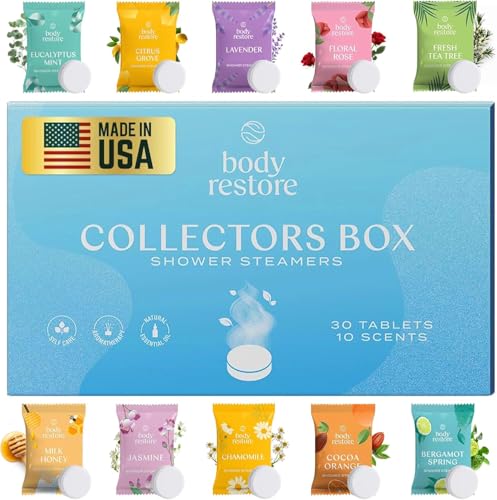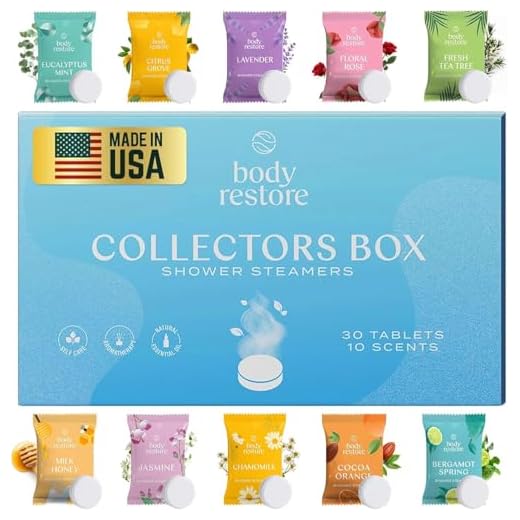Direct exposure to aromatic bath products can lead to health risks for felines. The strong fragrances and essential oils often used in these items may irritate sensitive respiratory systems. It’s vital to keep these products out of reach and avoid using them in areas where your furry friend spends time.
Many essential oils, including tea tree and eucalyptus, can be toxic to pets. Symptoms of toxicity may include drooling, vomiting, and lethargy. Always check ingredient labels carefully and consult your veterinarian if you’re uncertain about the safety of a particular product.
In my experience, it’s best to stick to pet-safe alternatives for creating a soothing atmosphere. Natural ingredients and unscented options are generally safer for our feline friends. As someone who enjoys a peaceful environment, I appreciate products that prioritize my well-being.
Shower Products and Feline Safety
These fragrant tablets can pose risks to my fellow felines. Many contain essential oils or fragrances that may be harmful if inhaled or ingested. Ingredients like eucalyptus or tea tree oil are particularly concerning. Even small amounts can lead to gastrointestinal upset or respiratory issues.
It’s wise for humans to keep such items out of my reach. If they insist on using them, ensuring proper ventilation is a must. Even then, it’s best to monitor us closely for any signs of distress, such as coughing, drooling, or unusual behavior.
For those looking to create a pleasant atmosphere, consider alternatives that are safe for us. Natural options like unscented bath salts or steam from boiling water can be enjoyable without the risk. Always prioritize our health when selecting fragrant products!
Understanding Shower Steamers Ingredients
Always check labels before exposing yourself to any product. Common components in these aromatic items include essential oils, citric acid, and baking soda. While some scents are pleasant for humans, they might be harmful to sensitive noses.
Common Ingredients
- Essential Oils: Lavender, eucalyptus, and peppermint are frequent choices. Cats can be sensitive or allergic to these, leading to potential respiratory issues.
- Citric Acid: This natural preservative can cause gastrointestinal distress in felines if ingested.
- Baking Soda: Generally safe, but excessive intake may lead to an upset stomach.
Potential Risks
Keep an eye out for artificial fragrances and colorants. These synthetic additives can irritate sensitive respiratory systems. Always consider your furry friend’s reaction to new smells.
Before trying any new product, consult with a veterinarian to ensure it aligns with your pet’s health needs. Better safe than sorry!
Common Essential Oils and Their Effects on Cats
Lavender oil can be calming but should be used with caution. While it may help humans relax, it can lead to gastrointestinal upset in felines if ingested or inhaled in high concentrations.
Peppermint oil is another popular choice among humans for its invigorating scent. However, this oil can cause respiratory distress in my kind, leading to coughing or difficulty breathing.
Table of Common Oils and Their Reactions
| Essential Oil | Potential Effects |
|---|---|
| Lavender | Can cause stomach upset; use cautiously. |
| Peppermint | May lead to respiratory issues. |
| Eucalyptus | Toxic; can cause vomiting and diarrhea. |
| Tea Tree | Highly toxic; can cause serious health problems. |
| Chamomile | Generally safe in small amounts, but monitor for allergies. |
Tea Tree oil is particularly harmful and should be avoided altogether. Exposure can lead to severe reactions, including tremors and ataxia.
Chamomile can be a safer option, but it’s wise to introduce it gradually and watch for any adverse reactions. Always consult a veterinarian before using any oil around me.
Signs of Toxicity in Cats Exposed to Shower Steamers
If you’re around certain aromatic products, watch for symptoms that might indicate distress. Look out for excessive drooling, vomiting, or unusual behavior like lethargy. Sneezing or coughing could also signal irritation in the respiratory system. If you notice any of these signs, it’s crucial to act quickly.
Increased heart rate and twitching can suggest a more severe reaction. Keep an eye on your feline friend’s appetite; a sudden loss of interest in food can be a red flag. If your kitty shows signs of trembling or fits, immediate veterinary attention is necessary.
Also, pay attention to their eyes. Redness or excessive tearing might indicate an allergic reaction or irritation. Cats that seem restless or are hiding more than usual might be feeling unwell. If any of these symptoms occur, consult a veterinarian without delay to ensure the health and safety of your furry companion.
How to Minimize Risks When Using Shower Steamers
Always keep your environment well-ventilated. Open windows or use an exhaust fan while using these products to reduce the concentration of any potentially harmful vapors. This helps in creating a safer atmosphere for all furry friends.
Store these aromatic products out of reach. Ensure that they are placed in cabinets or containers that are inaccessible to curious paws. This simple act can prevent accidental ingestion or exposure to the ingredients within.
Choosing Cat-Friendly Alternatives
Opt for steamers specifically designed without harmful additives. Look for brands that highlight their safety for pets in their marketing materials. Always read labels carefully to avoid any unpleasant surprises.
Monitoring Your Cat
Keep an eye on your furry companion during and after using these aromatic products. If your whiskered friend shows signs of discomfort, such as coughing, sneezing, or unusual behavior, discontinue use immediately. Consult a veterinarian if any concerning symptoms persist.
For capturing moments of your delightful pet, consider investing in the best camcorder digital camera worlddigital camera world best camcorder. Documenting your cat’s antics can be a fun way to share your experiences and raise awareness about safety in your home.
Cat-Friendly Alternatives to Shower Steamers
Try natural herbs and plants that are safe for felines. Here are some options:
- Catnip: This herb can stimulate playfulness and relaxation.
- Valerian Root: Known for its calming properties, it can help soothe anxious kitties.
- Chamomile: A gentle herb that can promote relaxation; consider using chamomile tea bags in a warm bath.
Aromatherapy can be approached without harmful oils. Use:
- Unscented Candles: Create a calming atmosphere without risks.
- Diffusers with Safe Scents: Opt for scents like vanilla or lavender, but ensure they’re cat-friendly and diffuse in a well-ventilated area.
Engaging toys are a great distraction. Check out the best toys for savannah cats for ideas that will keep your pet entertained without any risks.
Always prioritize safety by researching any new herb or scent before introducing it. Your well-being is the most important!
Consulting Your Veterinarian About Shower Steamers
Always seek advice from a veterinarian before introducing any new products into your home, especially those that create fragrances or release vapors. They can provide insights into the specific ingredients and potential risks associated with aromatic items. A knowledgeable vet can help assess the safety of various substances, taking into account your unique situation.
Gathering Information
Compile a list of ingredients from the packaging of any aromatic items you plan to use. Sharing this information with your vet will enable them to give tailored recommendations. Discuss any existing health issues your feline may have, as certain conditions can heighten sensitivity to specific compounds.
Regular Check-Ups
Routine veterinary visits can help monitor your pet’s health and identify any adverse reactions early on. Keeping your vet updated about any new products in your environment allows for proactive care and peace of mind.
Creating a Cat-Safe Bathroom Environment
To keep my territory safe, I recommend always ensuring that the bathroom is free from hazards. Begin by securing all cleaning supplies and personal care products in cabinets or on high shelves. This prevents accidental ingestion of harmful substances.
Ventilation is key. Make sure the bathroom has good airflow to disperse any lingering scents that could irritate my sensitive nose. An open window or an exhaust fan can help with this.
Consider using non-toxic alternatives for your bathing rituals. Opt for fragrance-free products or those specifically labeled as pet-friendly. This way, I won’t be exposed to any harmful chemicals.
Place mats or rugs in the bathroom to provide a comfy, slip-resistant surface for my adventures. It’s essential to have a safe landing if I decide to explore while you’re busy.
Keep the toilet lid closed and install a childproof lock if necessary. Curious critters like me might find it tempting to explore, leading to unwanted accidents.
Lastly, create a cozy nook in the bathroom with a soft blanket or a small bed. This gives me a safe retreat where I can observe without getting too close to potential hazards.









